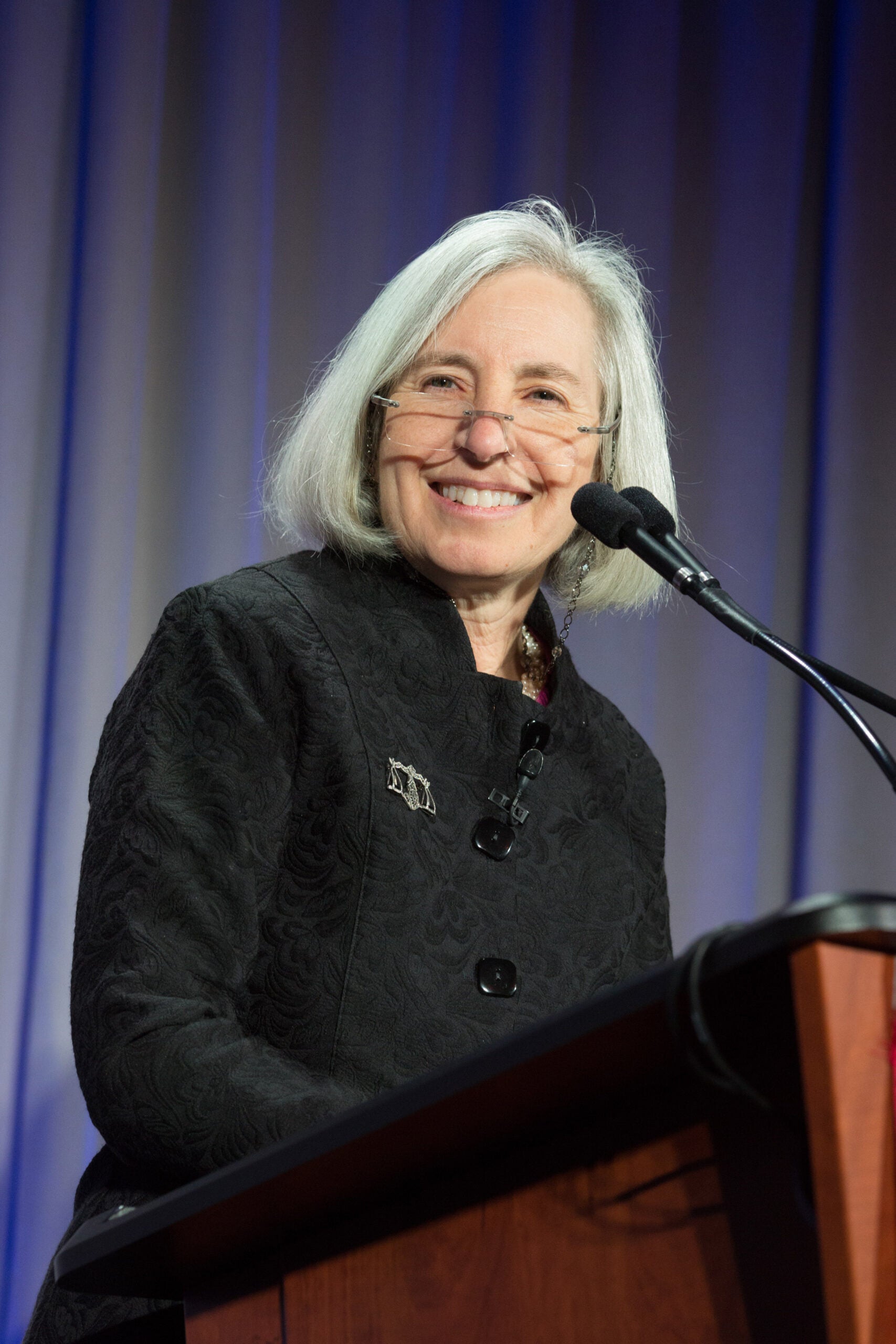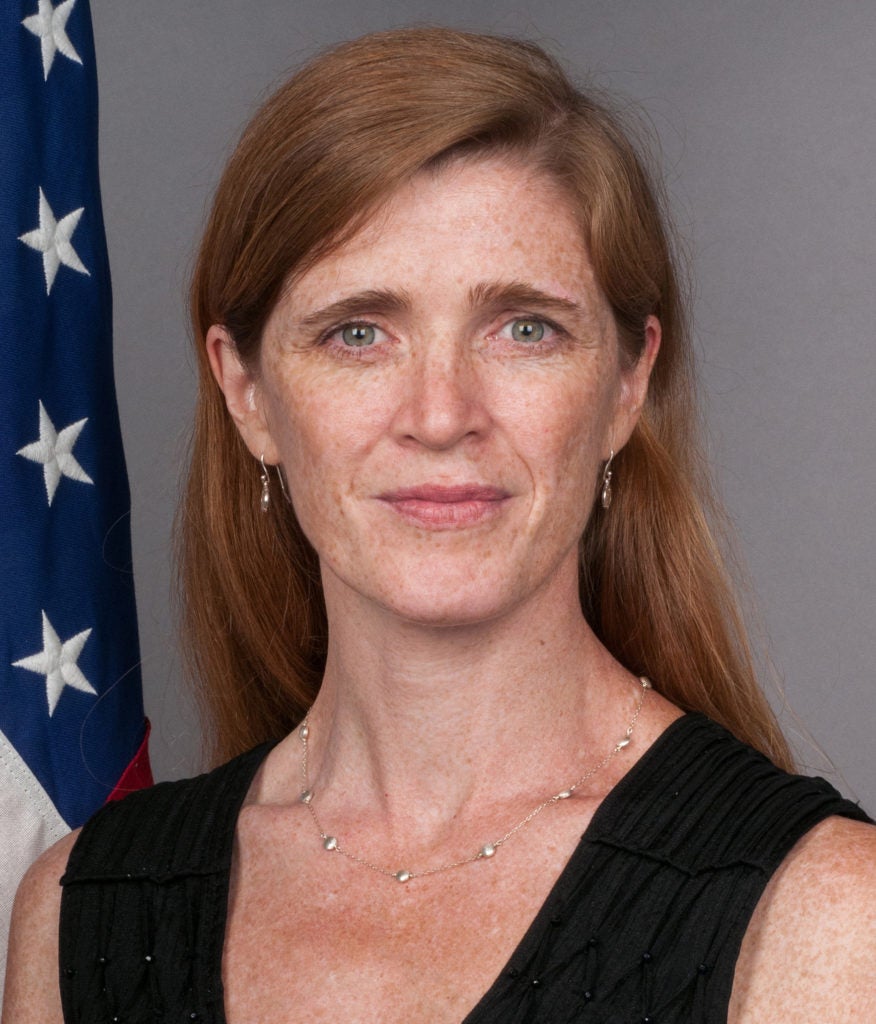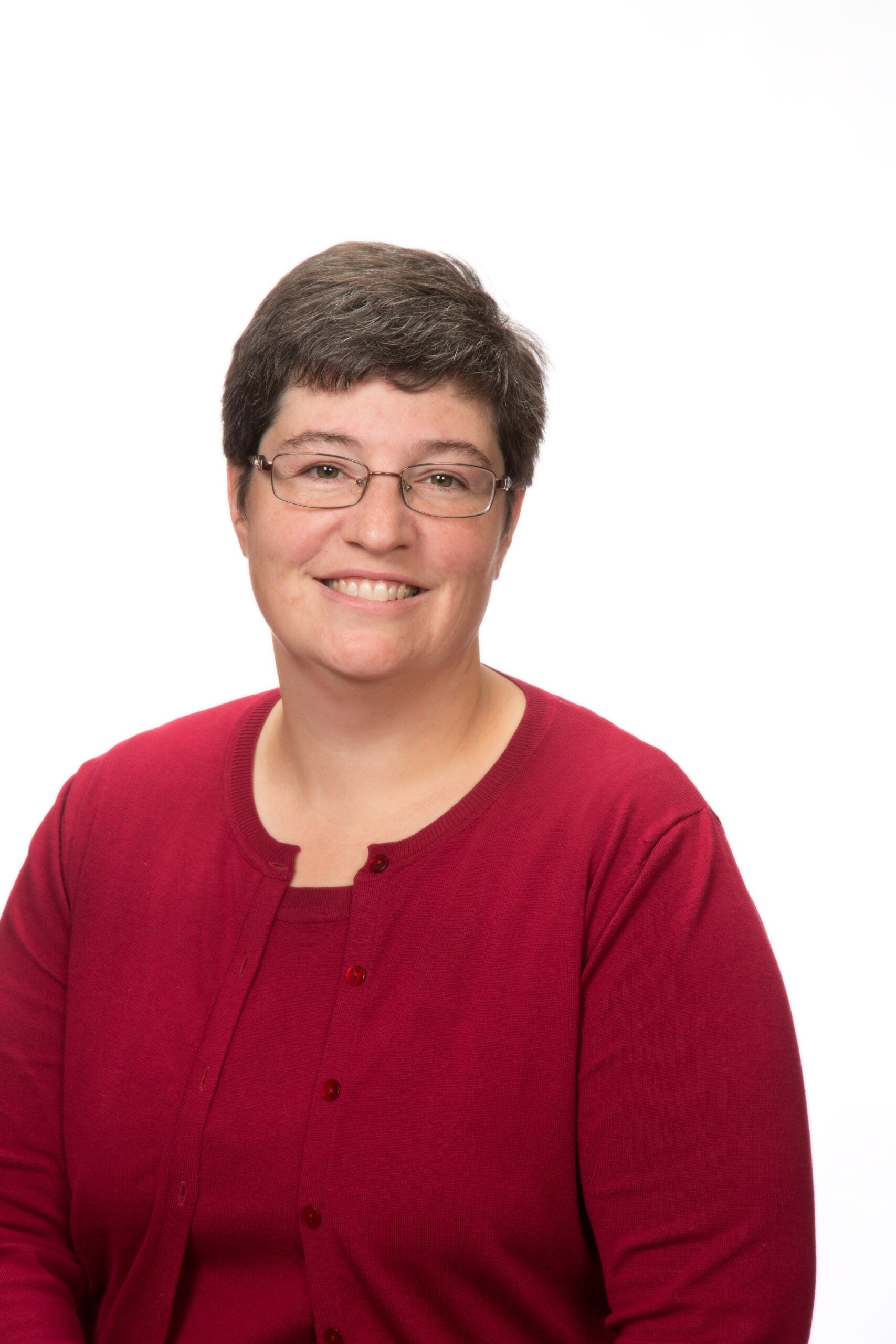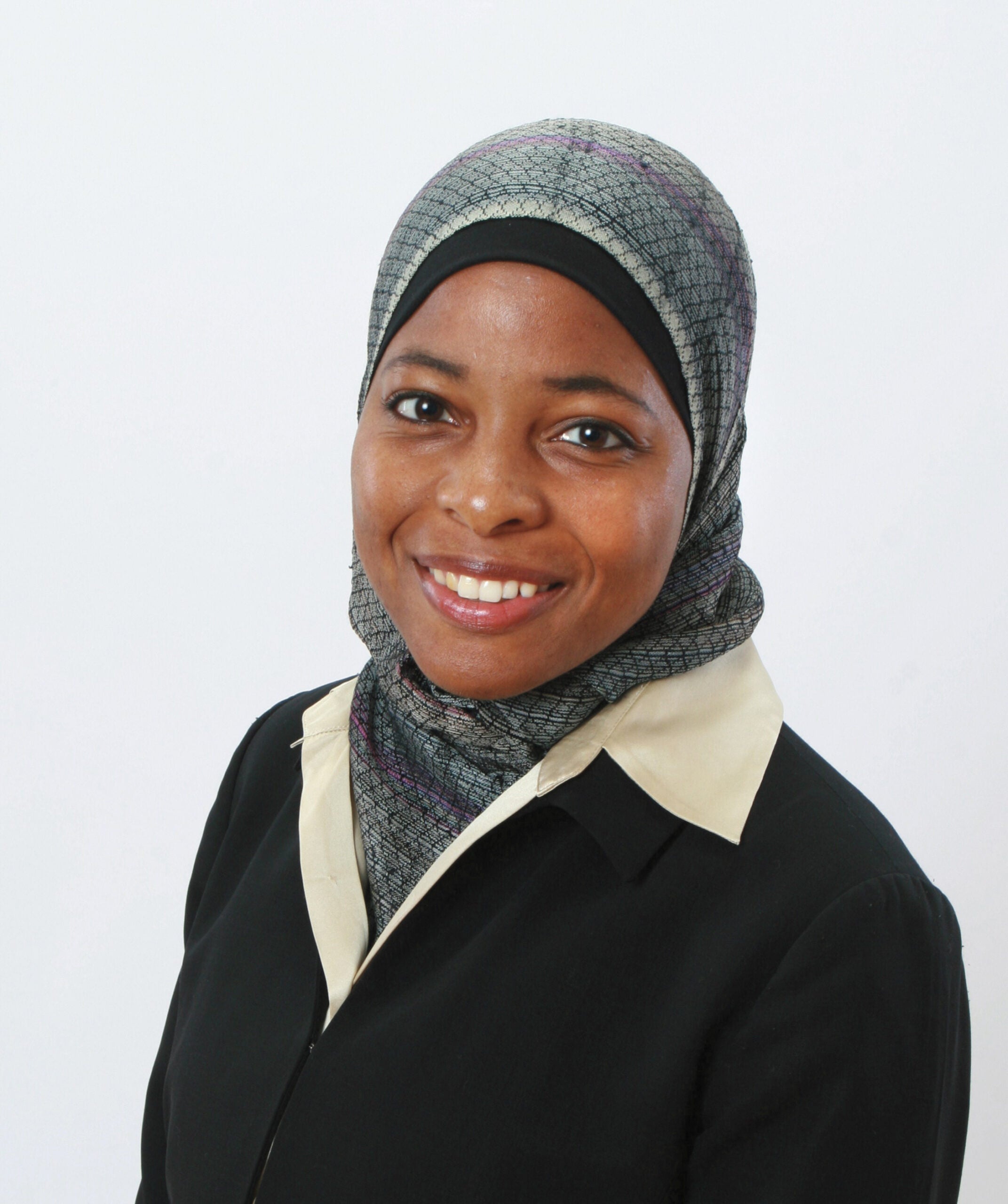The Radcliffe Institute for Advanced Study at Harvard University has selected Harvard Law School Dean Martha Minow and Harvard Law School Professors Samantha Power ’99, Adriaan Lanni and Intisar Rabb as Radcliffe Institute fellows for the 2017-2018 academic year. They are among more than 50 women and men in the 2017–2018 Radcliffe fellowship class who will pursue independent projects in the arts, humanities, sciences, and social sciences within the rich, multidisciplinary community.
“It is always wonderful to announce our incoming fellows and celebrate the 4 percent of applicants who were accepted,” said Radcliffe Institute Dean Lizabeth Cohen RI ’02, also the Howard Mumford Jones Professor of American Studies in the Department of History at Harvard University. “But it’s even more exciting when they arrive in the fall and start working on their projects and sharing their ideas with one another and the public.” Fellows at the Radcliffe Institute present lectures and exhibitions to the public, participate in cross-disciplinary study groups, and work closely with undergraduate Harvard students who serve as research partners.

Minow, who is concluding her service as the Morgan and Helen Chu Dean of the Harvard Law School, will be returning to her core area of scholarship—social justice and the law—with a fellowship project about child soldiers, sovereign and consumer debt, and forgiveness in law.

Power, an academic, author, and diplomat who most recently served as the United States Ambassador to the United Nations from 2013 to 2017, will work on a book about her years in public service. She has joined the faculty at Harvard Law School and the Harvard Kennedy School and will be the 2017–2018 Perrin Moorhead Grayson and Bruns Grayson Fellow at the Institute.

Lanni, the Touroff-Glueck Professor of Law at Harvard Law School, focuses her research on law and society in classical Athens. Recently awarded a 2017 Guggenheim fellowship, Lanni will use her fellowship term to complete a book entitled “Crime and Justice in Democratic Athens.”
Rabb, a leading expert on Islamic Law and legal history, is

the faculty director of the Islamic Legal Studies Program and the Susan S. and Kenneth L. Wallach Professor, Harvard University Radcliffe Institute for Advanced Study. She will use her fellowship year to work on a book,”Qāḍī Justice: Cases and Controversies in Early Islamic Law and Society,” on early Islamic courts and the people and procedures operating in them.
In addition to Minow, Power, Lanni and Rabb, the incoming Radcliffe fellowship class includes:
Harvard Law School alumna Patricia J. Williams ’75, a law professor at Columbia University and columnist for the Nation, will be the 2017–2018 Carl and Lily Pforzheimer Foundation Fellow at the Institute, where she will work on “Gathering the Ghosts,” a book about race and American family life from the late 1800s to today. She will use collections at the Schlesinger Library at Radcliffe, including a collection of her own family’s archive of letters and photographs that she donated.
Cultural historian Robert Darnton—the Carl H. Pforzheimer University Professor at Harvard, emeritus, and the Harvard University Librarian, emeritus—will be working on a book about publishers, booksellers, and readers in France from 1769 to 1789. He will be the 2017–2018 Joy Foundation Fellow.
A playwright from Nigeria, Ifeoma Fafunwa, who was a visiting scholar at Radcliffe last spring and presented the play Hear Word! in partnership with the American Repertory Theater and the Harvard University Center for African Studies, will be returning to work on a new play: Who the Hell Would Choose to be LGBT and Nigerian!? She will continue to work with the A.R.T. as the 2017–2018 Mary I. Bunting Institute Fellow at the Radcliffe Institute.
Shafi Goldwasser, who won a Turing Award for her work on cryptography, is the RSA Professor of Electrical Engineering and Computer Science at MIT and a professor of computer science and applied mathematics at the Weizmann Institute of Science in Israel. At the Radcliffe Institute, Goldwasser will be the 2017–2018 William and Flora Hewlett Foundation Fellow and her focus will be on applying cryptography to advance scientific discovery.
Thomas Lenormand, an international fellow, will be coming from Centre National de la Recherche Scientifique to be the 2017–2018 Hrdy Fellow at Radcliffe. He will work on the role of gene regulation in adaptation and will synthesize new ideas for evolutionary theory and contribute to the unification of life sciences.
Pulitzer Prize–winning author Marilynne Robinson, acclaimed for the novels Housekeeping(1980), Gilead (2004), Home (2008), and Lila (2014), will spend her fellowship year working on a series of lectures that will become a book about the Old Testament. She will be the 2017–2018 Walter Jackson Bate Fellow at the Institute.
Chad Williams, an associate professor and chair of the Department of African and Afro-American Studies at Brandeis University, will be part of the Institute’s research initiative on citizenship. His focus will be on an uncompleted work by W.E.B. Du Bois about black participation in World War I. He will be the 2017–2018 Evelyn Green Davis Fellow.
This class of fellows hails from across the United States. They will join the nearly 850 fellows who have spent a year at the Radcliffe Institute in pursuit of knowledge and the creation of original work.
In 2009, Minow took the helm of the Law School in the wake of the global financial crisis, and has steered the school through the resulting economic challenges to a period of program and faculty growth, a strengthened commitment to public service, and campus renewal with the construction of the WCC building and creation of the campus courtyard. She has continued to teach, write, and advise students throughout her tenure as dean.
During her deanship, Minow has continued her broader service to the legal academy and the profession while focusing attention on the delivery of legal services nationally and internationally. She has served as vice chair of the board of the government-sponsored Legal Services Corporation (LSC), which provides and promotes civil legal aid for people who cannot otherwise afford counsel, and as chair of the LSC’s Pro Bono Task Force. She also served as the inaugural chair of the Deans Steering Committee of the Association of American Schools and as a member of the American Bar Association’s Diversity and Inclusion 360 Commission.
Power became Ambassador to the United Nations in August 2013, after serving for four years as President Obama’s Special Assistant for Multilateral Affairs and Human Rights on the National Security Council. At the U.N., Power negotiated the toughest sanctions in a generation against North Korea, became the public face of U.S. opposition to Russian actions in Ukraine and Syria, lobbied to help secure the release of political prisoners around the world, and spearheaded UN reforms, including of U.N. peacekeeping.
Power first came to the Kennedy School’s Belfer Center for Science and International Affairs in 1998 as project director of the Human Rights Initiative, which later became the Carr Center for Human Rights Policy. Prior to her academic career, Power served as a foreign correspondent, contributing to The New Yorker, New Republic, and New York Review of Books. She won the Pulitzer Prize in 2003 for “’A Problem from Hell:’ America and the Age of Genocide,” which examined U.S. response to genocide in the 20th century. She is also the author of the New York Times bestselling book, “Sergio: One Man’s Fight to Save the World” (2007) and the editor, with Derek Chollet, of “The Unquiet American: Richard Holbrooke in the World” (2012). In 2004 and 2015 she was named by Time Magazine as one of the 100 most influential people in the world.
Lanni’s teaching and scholarship combine her expertise in both criminal law and ancient legal history. At Harvard Law School, she teaches Criminal Law, Criminal Adjudication, and the Criminal Justice Workshop, as well as a variety of legal history courses on ancient Greek and Roman law. Her publications include “Law and Justice in the Courts of Classical Athens,” and the just published “Law and Order in Ancient Athens,” as well as several articles on ancient law and the modern criminal jury.
In addition to her HLS appointment, Rabb is a Professor of History, Harvard University Faculty of Arts and Sciences and the Susan S. and Kenneth L. Wallach Professor, Harvard University Radcliffe Institute for Advanced Study, where Rabb was part of the 2016, 2017 classes of fellows. Radcliffe professorships, which are offered in conjunction with tenured positions at the University, help recruit scholars to the Harvard faculty. Radcliffe Professors spend four semesters as fellows at the Institute during their first five years at the University.
Prior to joining HLS in 2014, Rabb was an associate professor of Middle Eastern and Islamic Studies and Law at New York University School of Law, where she held a joint appointment at the NYU Middle Eastern and Islamic Studies Department and the NYU School of Law. She also holds appointments as the Susan S. and Kenneth L. Wallach Professor at the Radcliffe Institute and a professor of history at Harvard University. She has published on Islamic law in historical and modern contexts, most recently the monograph Doubt in Islamic Law: A History of Legal Maxims, Interpretation, and Islamic Criminal Law (Cambridge University Press, 2015).
Learn more about the 2017–2018 class of fellows and what they will be working on at the Radcliffe Institute for Advanced Study: